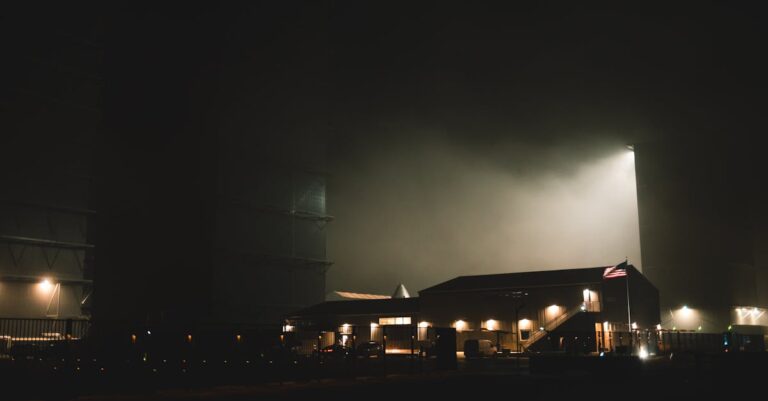
## The Cartographer’s Bloom
The desert wind tasted of grit and sun-baked stone, a familiar sting against my lips. I squinted at the shimmering horizon, dust devils dancing like restless spirits across the ochre expanse. This wasn’t just any desert; this was Giza, circa 30 BC, a construction site unlike anything I’d ever seen. Or rather, *would* see – transported here after millennia buried beneath shifting sands.
The Library of Obsolete Arts, they called it. A grand misnomer, frankly. It wasn’s a collection of books. This was a workshop, a revivalist’s dream rendered in meticulously carved sandstone and gleaming bronze. Artisans, pulled from across the known world, toiled within its walls. Their tools weren’t steel or iron; they were implements forgotten by time, powered by intricate clockwork and ingenious hydraulics.
My name is Theron. I’m an architect, or rather, *was* before the Pharaoh’s envoys yanked me from my life in Alexandria. Now, I oversee the structural integrity of this… anomaly.
“The gear ratios on the eastern accumulator are fluctuating,” a young apprentice, barely old enough to shave, reported, wiping sweat from his brow with the back of his hand. His bronze-clad fingers trembled slightly.
“Adjust the tension on linkage seven,” I instructed, my voice dry from the heat. “Quickly.”
The entire project felt unstable, a precarious balancing act between ancient ingenuity and the raw power of the desert. The Library itself was not built; it *appeared*. Pulled from some subterranean realm, a place where forgotten crafts flourished, and then painstakingly reassembled, brick by laborious brick. It was a monument to lost skills: glassblowing without fire, metal casting using sonic waves, textiles woven from spun moonlight—or so the scrolls claimed.
Cleopatra watched from a distance, her gaze sharp and calculating. She believed this Library held the key to solidifying Egypt’s dominance, a technological advantage her rivals couldn’t comprehend. She saw weapons beyond bronze, defenses against Rome’s relentless advance.
“The vibrations intensify with each solar cycle,” a wizened craftsman, Khepri, announced, gesturing to the complex network of gears and levers housed within a massive revolving chamber. “The landscape echoes with a resonance I haven’t felt before.”
“Resonance?” I questioned, my gaze fixed on the intricate machinery.
He nodded slowly, his eyes like ancient pools reflecting forgotten knowledge. “It’s as if the very earth remembers.”
The Library didn’t simply demonstrate these outdated skills; it *replicated* them, creating self-sustaining ecosystems within its walls. A miniature rainforest thrived under artificial suns; a forge produced flawless glass without the need for intense heat. Everywhere I looked, forgotten artistry bloomed in defiance of logic and conventional understanding.
One evening, observing the hydraulic loom churning out shimmering fabrics that seemed to absorb and reflect light simultaneously, I heard a voice behind me.
“Impressive, isn’t it?”
It was Seti, a royal scribe, his face etched with frustration and barely contained excitement.
“It’s… chaotic,” I countered, gesturing to the whirlwind of activity surrounding us. “How can Cleopatra possibly harness this?”
“She believes she can weaponize it, of course. Imagine siege engines powered by sonic resonance; armor that renders projectiles harmless.” He paused, his eyes gleaming with an unsettling fervor. “She believes this will secure Egypt for millennia.”
“And what if she’s wrong?” I asked, the question hanging heavy in the humid air.
He shrugged, dismissing my concern with a wave of his hand. “The outcome is irrelevant. Egypt will endure.”
But I felt a growing unease, a sense of impending disruption rippling through the project. The dreams manifested in this place weren’t just mechanical; they were… alive.
“The earth is shifting,” Khepri announced, his voice laced with a tremor I’d never heard before. “The foundations… they are not stable.”
A low rumble vibrated through the ground, shaking dust from the ceiling. The intricate gears and levers groaned under the strain.
“It’s mimicking the Flood Myth,” I muttered, recalling the scrolls detailing the Library’s origins. “The cycles of creation and destruction.”
Sand began to seep through cracks in the walls, a pale tide consuming everything it touched. Panic seized the artisans.
“The artifact!” Seti shouted, pointing to a colossal circular aperture at the Library’s heart. “Is it ready?”
Within that aperture, a complex assembly of crystalline lenses and polished obsidian was slowly rotating. It was the culmination of their work, a symbolic representation of the prime celestial configuration described in the ancient texts. It was supposed to generate… something.
“It’s aligning,” Khepri whispered, his eyes fixed on the rotating assembly. “The stars… they are mirroring it.”
Suddenly, a blinding light erupted from the aperture, bathing the entire Library in an otherworldly glow. A wave of energy pulsed outwards, shaking the very foundations of Giza.
“What *is* it?” I yelled over the escalating chaos.
The light subsided, revealing a shimmering orb suspended within the aperture. It pulsed with an inner luminescence, emitting a low hum that resonated deep within my chest.
“A linguistic bloom,” Seti breathed, his voice filled with awe and a touch of fear. “It’s propagating sound… mathematical patterns…”
The orb unleashed a series of complex harmonic frequencies, resonating with the surrounding sand. The vibration amplified, growing exponentially.
“The desert is responding,” Khepri stated grimly, his voice barely audible above the intensifying roar. “The sand… it’s moving.”
Indeed, it was. The dunes surrounding the Library began to swirl and coalesce, shifting with unnatural speed. Massive sand waves rose like colossal beasts, obscuring the familiar landscape.
“It’s disrupting the foundations!” I shouted, grabbing Khepri’s arm. “We need to evacuate! Now!”
But it was too late. The Library groaned, the carefully constructed edifice cracking under the relentless force of the shifting sands.
A colossal wave of sand engulfed us, swallowing everything in its path. I felt a searing heat against my skin, the sensation of being buried alive.
Then, darkness.
…
I awoke disoriented, lying on a bed of cool sand. The air was still, the heat oppressive. I sat up slowly, scanning my surroundings.
The Library… it was gone.
In its place stretched a vast, undulating sea of sand, encompassing an area far greater than the original construction site. Colossal dunes towered overhead, their peaks shimmering under a relentless sun.
But something was different. The sand… it wasn’t just barren wasteland. Embedded within the dunes were remnants of structures, fragments of forgotten machinery, shimmering with an otherworldly glow.
I walked towards a partially buried section of the Library, brushing away layers of sand to reveal a complex network of gears and levers carved from obsidian. The craftsmanship was exquisite, unlike anything I’d ever seen, even within the Library itself.
Suddenly, a voice echoed through the dunes.
“Welcome,” it resonated, seemingly from everywhere and nowhere at once. “You have awakened.”
I turned to see a figure emerge from the swirling sand, their form shimmering and indistinct.
“Who are you?” I asked cautiously.
“We are the echoes,” the voice replied, “the residual consciousness of those who sought to resurrect lost knowledge. You have stumbled upon a legacy preserved within the sands, a testament to ingenuity and folly.”
I looked around, taking in the vast expanse of sand, the scattered remnants of forgotten brilliance.
“This isn’t Giza anymore,” I realized, a chill running down my spine.
“No,” the echo affirmed. “It is what remains when knowledge outstrips comprehension, a place where dreams become reality and the past becomes… permanent.”
The sands shifted beneath my feet, revealing a fragment of papyrus scroll, miraculously preserved within the dry earth. I picked it up, brushing away the dust to reveal a single line of hieroglyphs: *“The Cartographer’s Bloom endures.”*
I looked out at the endless sea of sand, a silent monument to lost civilizations and forgotten dreams.
I was no longer Theron, the architect from Alexandria. I was something else now – a witness, a guardian of this surreal landscape, a silent sentinel within the Cartographer’s Bloom.
The desert wind whispered against my skin, carrying the faint hum of ancient machinery, a constant reminder that some knowledge is best left buried – and other times, unleashed.
The sands continued to shift, the echoes lingered, a timeless legacy etched within the heart of an eternal desert.


